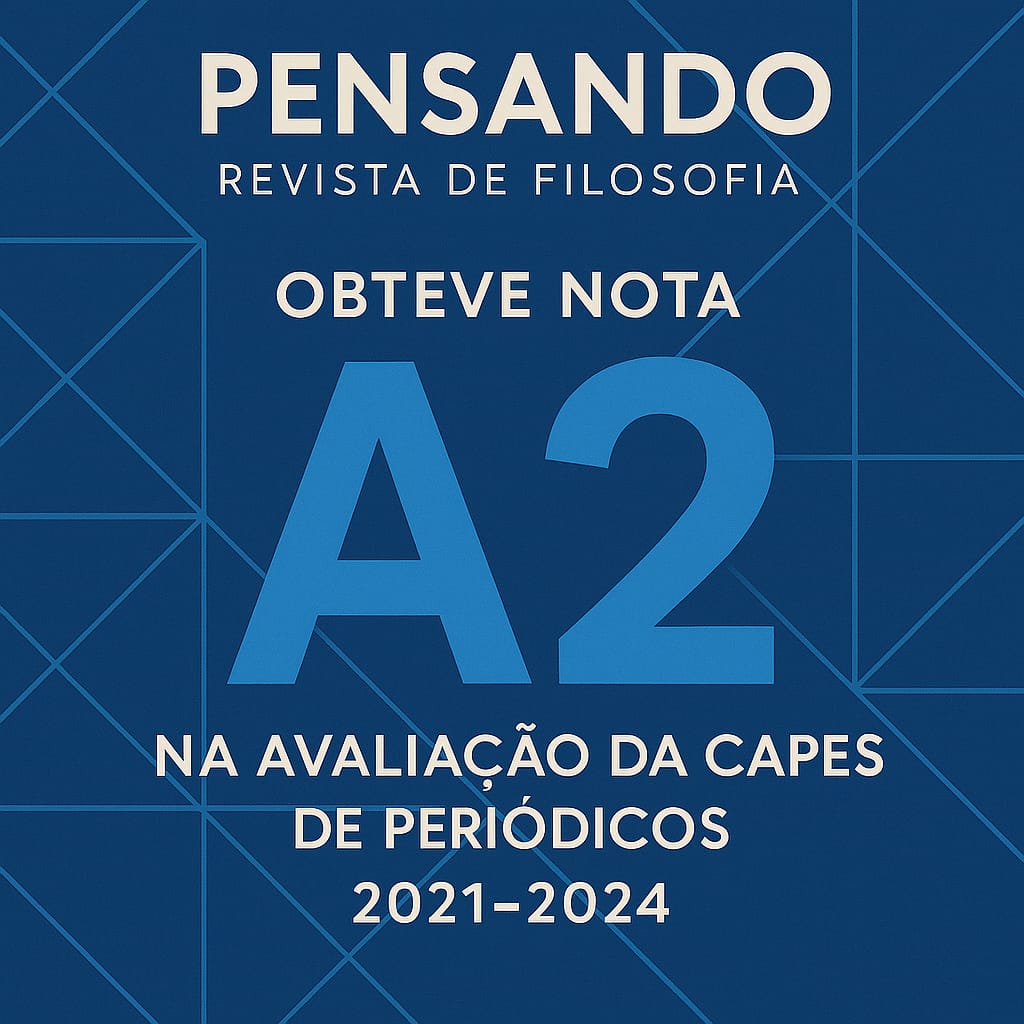An Afrodiasporic Philosophy among fragmenting writings
DOI:
https://doi.org/10.26694/pensando.vol15i36.5901Keywords:
Culturas Negras, Racismo epistêmico., LinguagemAbstract
The act of writing philosophically has become one of the brands of modernity in which there is a determination of who produces philosophy. Mainly through conceptual and methodological standardization, which invariably legitimizes a text as philosophical. Therefore, in this article I intend to problematize this “philosophical writing” from the horizon of the African diaspora with the intention of proposing a notion of “fragmentary writing”. In this, there is a move away from the apprehension of a totality or the maintenance of a particularity, but rather a subversion of philosophical writing itself, because the aim is to ask: who remains on the margins when philosophy is thought of in accordance with a textual pattern? This question is influenced by the thinking of bell hooks, in which for the author the black American vernacular subverts standard English in order to re-inscribe historically violated lives. In the Brazilian scenario, similarly, Lélia Gonzalez also highlights pretoguês as an African affirmation, in its cultural expressions, in the Portuguese language. For this reason, there is the possibility of a dialog between Lélia and bell in expanding the ways of speaking/writing about the reality of lives stripped of humanity. In order to deepen this dialog, other authors will also be included in the article to support a philosophy in which the fragments of the black experience are included in this production of knowledge, for example, Christina Sharpe, Denise Ferreira da Silva, Grada Kilomba, Fred Moten, Felwine Sarr, Dionne Brand. This proposal focuses on philosophical writing as a relationship with silenced voices that expands the production of knowledge to different cultural expressions. Therefore, my argument is that philosophy is strengthened by bringing the following question to the heart of its digressions: why don't we listen to the fragments of the languages of the peoples of the global south? An answer that puts a strain on philosophical practice as a responsibility to subvert its own norms.
References
BRAND, Dionne. Um mapa para a porta do não-retorno: notas sobre pertencimento. São Paulo: A Bolha, 2022.
FANON, Frantz. Pele negra, máscaras brancas. Salvador: EDUFBA, 2008.
FANON, Frantz. Os condenados da terra. São Paulo: Zahar editora, 2023.
GONZALEZ, Lélia. Por um feminismo afro latino-americano. São Paulo: Jorge Zahar edições, 2020.
GORDON, Lewis. “Decadência disciplinar e a de(s)colonização do conhecimento”. Epistemologias do sul, Foz do Iguaçu/PR, 1 (1), 110-126, 2017.
hooks, bell. Ensinando a transgredir: a educação como prática da liberdade. São Paulo: Martins Fontes, 2017.
KILOMBA, Grada. Memórias da Plantação: episódios do racismo cotidiano. Rio de Janeiro: Cobogó, 2020.
MOTEN, Fred. “Ser prete ser nada”. Pensamento radical negro. São Paulo: Crocodilo Edições; N-1 edições, 2022.
SARR, Felwine. Afrotopia. São Paulo: N-1 edições, 2020.
SHARPE, Christina. Algumas notas do dia a dia. São Paulo: Fósforo, 2023.
VANDAL. Tirasuapazh. Official Video: Youtube, 18 de junho de 2018. Disponível em: https://www.youtube.com/watch?v=PDY4wJj-au4 Acessado em 28 de junho de 2024.
Published
How to Cite
Issue
Section
License
Copyright (c) 2024 PENSANDO - REVISTA DE FILOSOFIA

This work is licensed under a Creative Commons Attribution 4.0 International License.

























